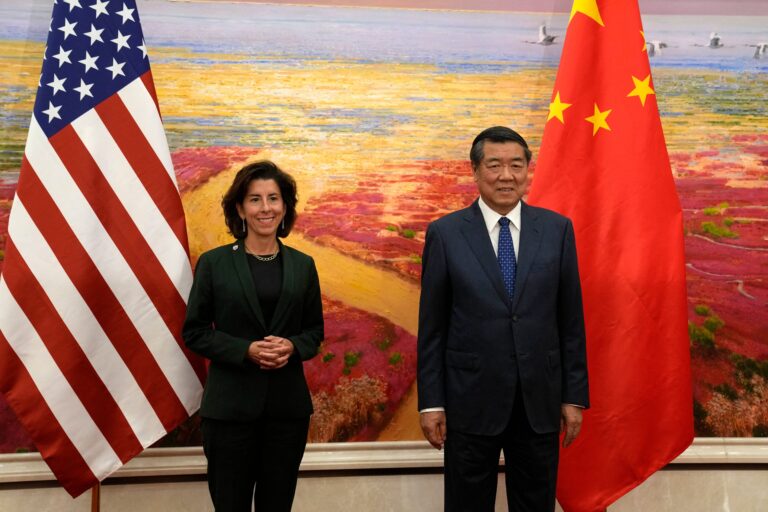A strong and active U.S. presence in the region makes the Indo-Pacific safer and more stable, Raimondo said, adding that the framework is focused on strengthening ties in the region.
“China is doing the Chinese thing. They’re investing here and that’s their approach,” Raimondo, who was in Singapore for the IPEF ministerial meeting, told CNBC’s Eunice Yun.
“But we’re here. This is not about China. This is about the U.S. showing up in the region.”
IPEF member countries on Thursday signed a “clean economy” agreement to accelerate sustainable infrastructure projects in the region, announcing $23 billion in investment opportunities, according to a Commerce Department statement.
During her stay, Raimondo also took part in bilateral meetings with partner countries to address several issues, including climate goals.
“Singapore has long advocated for active U.S. engagement in the region, particularly in Southeast Asia, and we have acted consistently in this belief,” Singapore Prime Minister Lawrence Wong said after meeting with the U.S. commerce secretary.
Raimondo stressed that the United States is not preventing regional countries from deepening economic ties with China.
“We’re not here to tell these countries what to do,” she said. “They’re all trading with China, they’re trading electric vehicles with China … that’s fine.”
She added that the United States has “significantly stepped up” its economic support to the region through the provision of engineering, technical assistance and capital.
At the recent G7 meeting, US Treasury Secretary Janet Yellen warned about China’s state-led industrial policies.
China’s industrial overcapacity – the excessive production of goods at lower prices than global competitors – is causing growing global concern, with other countries arguing that such production is often heavily subsidized.
China’s commerce minister, who is visiting Europe, denied accusations of “overcapacity” as “baseless.”
When China floods the market with subsidized products, “it destroys the entire global price of that product, whatever that product may be,” Raimondo said, adding that this “makes us all less safe.”
While each country must make its own judgment, “if we act together, I think that’s a way to send a message to China,” he said.
—CNBC’s Evelyn Chen contributed to this report

